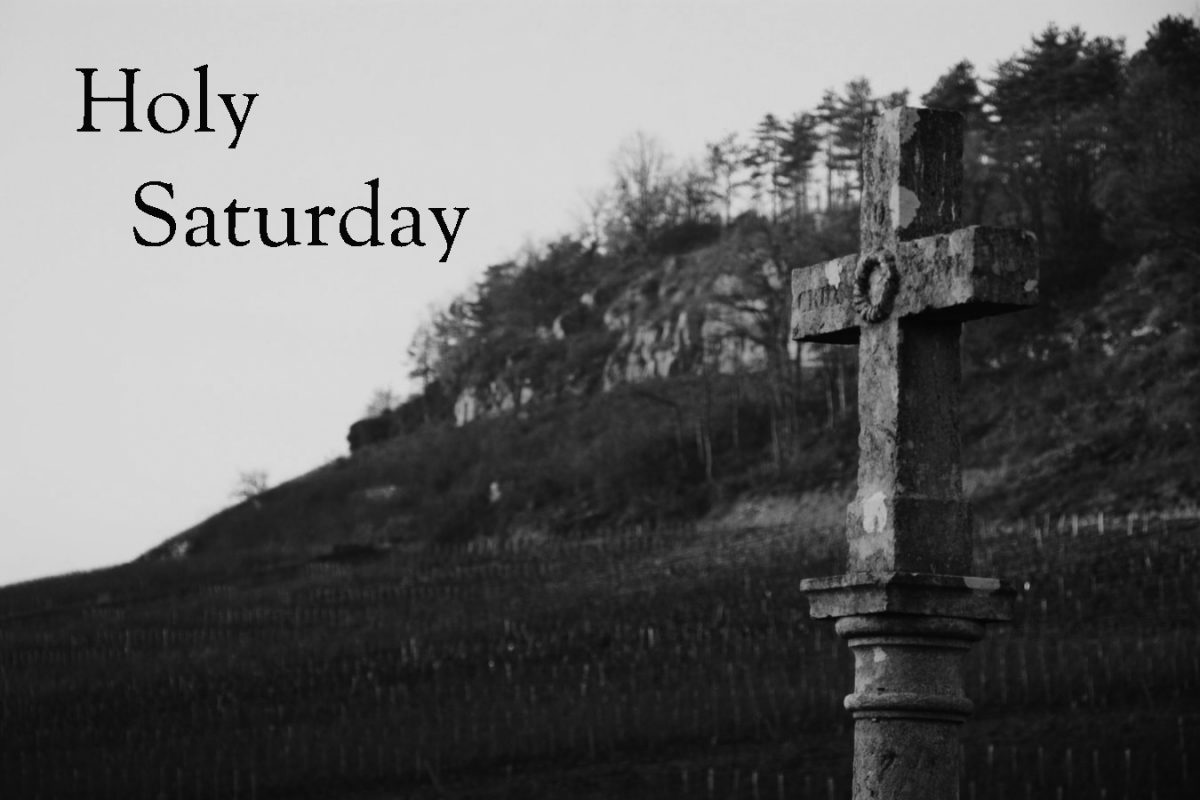My God, my God, why have you forsaken me?
Why are you so far from saving me, from the words of my groaning?
O my God, I cry by day, but you do not answer,
and by night, but I find no rest.
(Psalm 22.1-2)
Long before Christ uttered these words on the cross, they were the anguished prayer of God’s suffering people. They are the sentiment of righteous Job, attacked by Satan directly and in the incarnation of his friends. David cries out with these words, having experienced attacks by Saul and his own son, Absalom, and driven into exile. These continue to be the cries of our brothers and sisters who suffer persecution and death at the hands of wicked Muslims, atheistic communists, Hindus, and others. Why has God forsaken me? Why is he not rescuing me at the moment of my greatest pain and despair, leaving me to the hands of my enemies to cruelly do as they please?
The anguishing cries of Good Friday echo through God’s silence of Holy Saturday. Where is God? Where are his promises? There is only death. The enemies have prevailed. The hope of Israel and the world lies under the power of death in a tomb. “O my God, I cry by day, but you do not answer, and by night, but I find no rest.” God is silent.
Within the rhythm of Holy Week, it is easy to lose Holy Saturday in the midst of the feast of Maundy Thursday, the darkness of Good Friday, and the bright joy of Easter Sunday. Holy Saturday is quiet. That is as it should be. Concentrated in Holy Saturday are all the tensions God’s people have ever experienced between God’s promised future and the present. If we rush from Good Friday to Easter Sunday in impatience, we miss the valuable lesson of learning to live in the tension between promise and fulfillment.
Holy Saturday is the heartsickness of hope deferred (Prov 13.12). Holy Saturday is that space of God’s thunderous silence in which we, his people, cry out, “How long, O Lord?” Holy Saturday is the promise of resurrection immortality given in baptism to a body that is turning to dust. Holy Saturday is the space between the death of our loved ones and the promise that we will be reunited. Holy Saturday is the declaration that we are kings and queens over creation while being subjected to the tyrannical cruelty of Satan’s principalities and powers.
Holy Saturday is God’s test of our faith. Will we patiently submit to God’s difficult providences, obeying him even when it appears to us that he is not acting on our behalf, or will we impatiently grasp for Easter Sunday before the time?
The space between promise and fulfillment can’t be rushed. It must be endured. No one can “fix it” at that time. There is no “fixing it.” There is only persevering in faith. Waiting. Praying. Hoping.
Christian congregations around this world are enduring a Holy Saturday time in the present. Our congregations are scattered, united by the Spirit, but only able to be together pixels and sound waves. In his providence, God has given us over for the time to an enemy that has isolated us from one another. While we are thankful for the technological means he gives us to communicate, we feel deeply the lack of face-to-face interaction with our brothers and sisters in worship. We have a deeper sense of what it means to pray Psalm 22 as our fathers and mothers have prayed for millennia.
Holy Saturday must be endured, but it must be endured in hope; that certain hope that Easter Sunday is coming just like Jesus said it would. God is silent, but he will not remain so. And when he brings us out of this Holy Saturday moment, we will sing:
I will tell of your name to my brothers;
in the midst of the congregation I will praise you …
For he has not despised or abhorred the affliction of the afflicted,
and he has not hidden his face from him,
but has heard, when he cried to him.
(Psalm 22.22, 24)
















